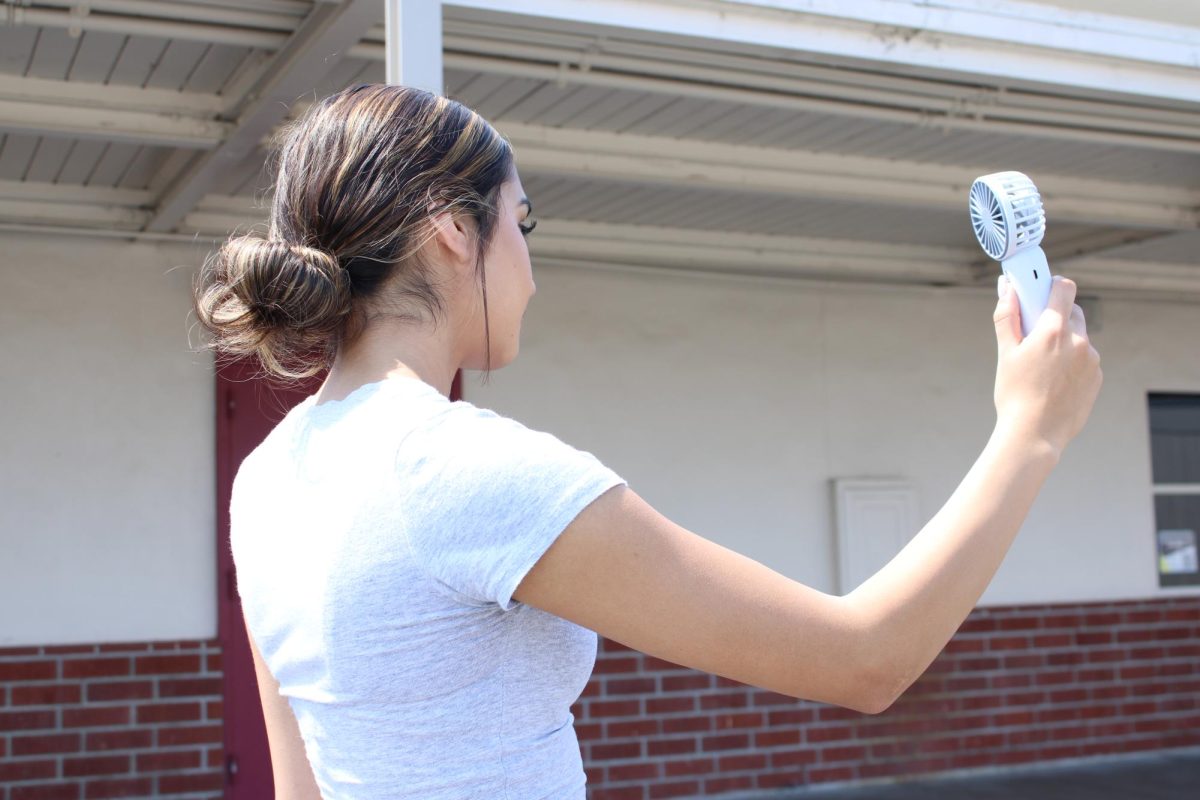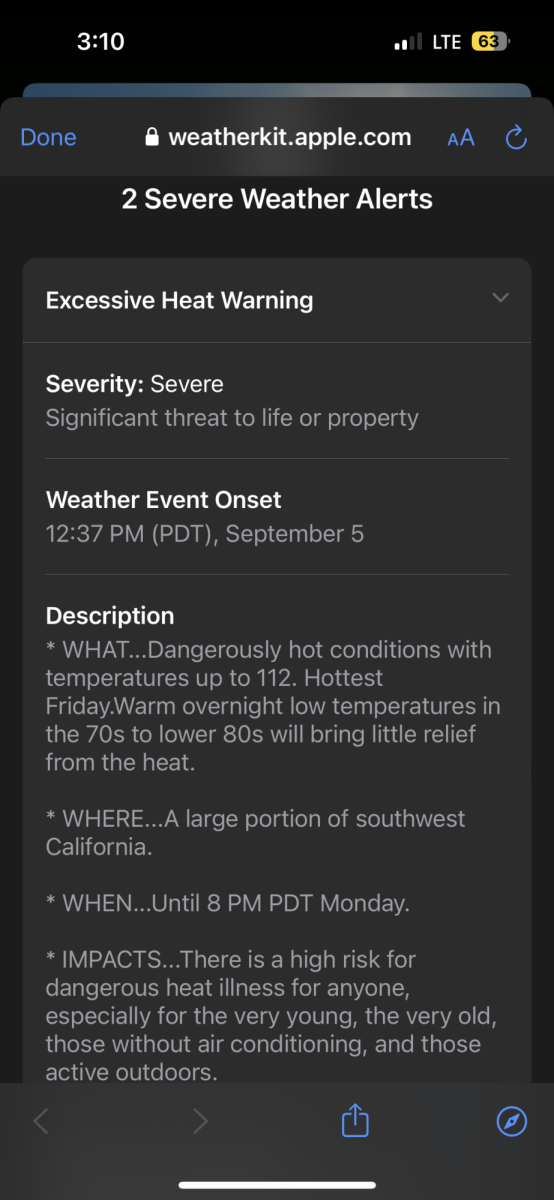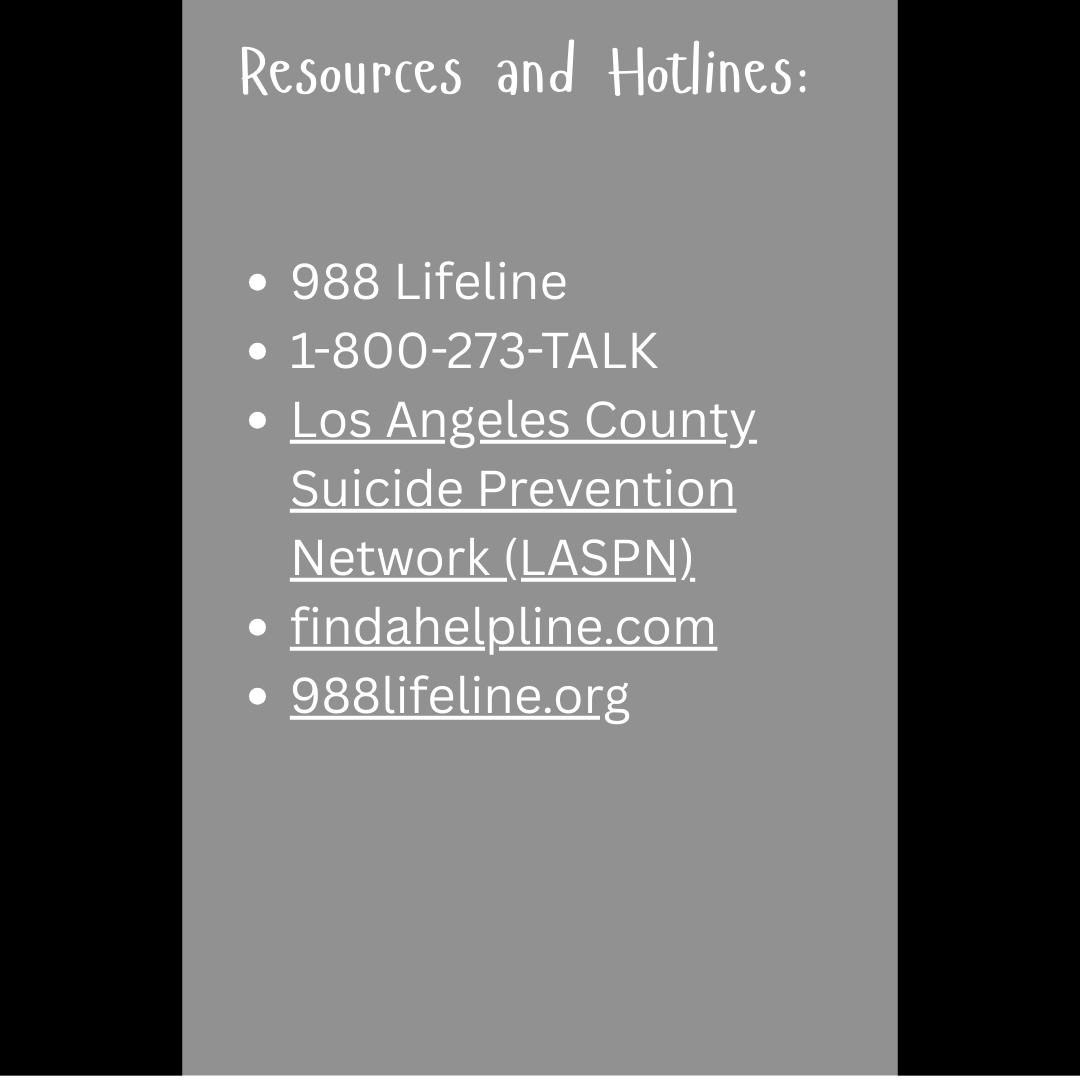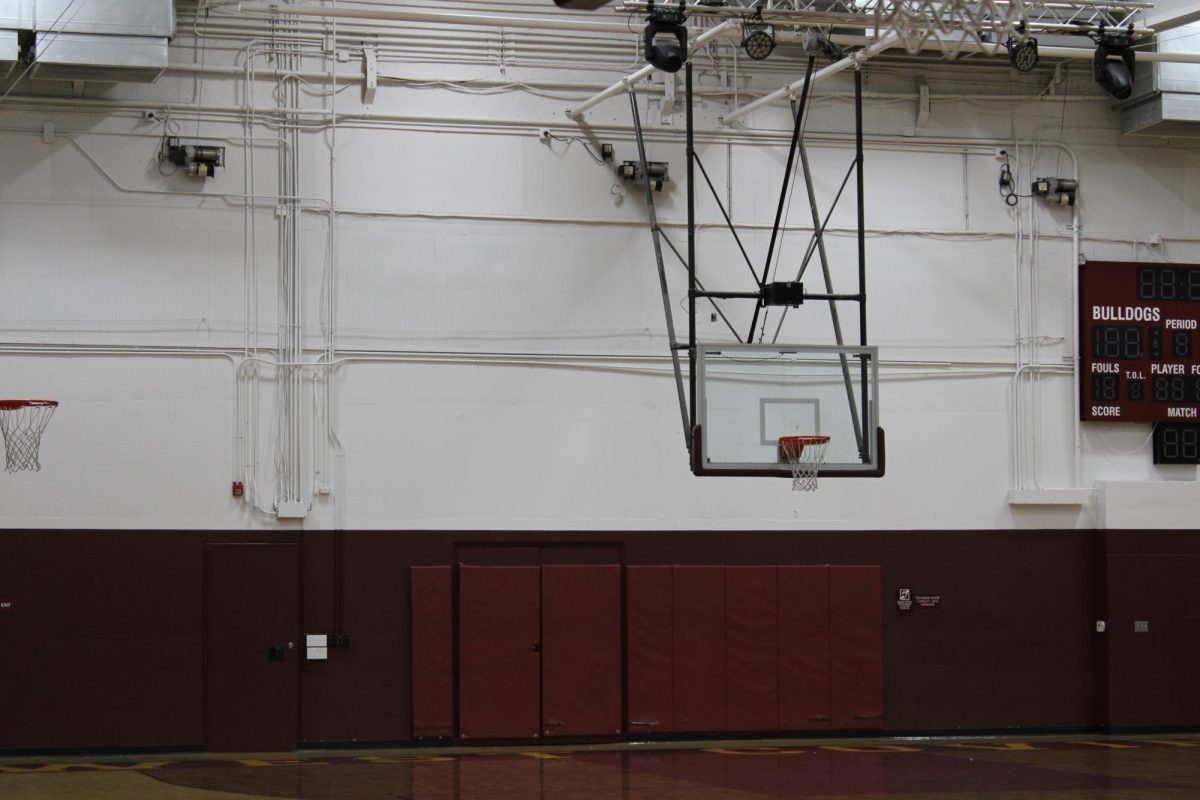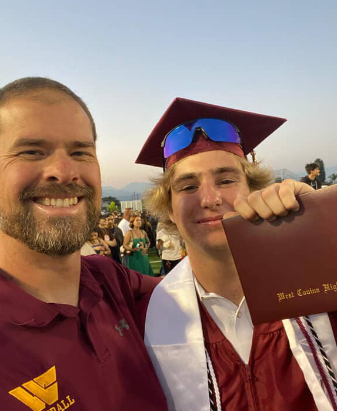Although Californians are accustomed to the heat, recent temperatures have alarmed the public. Typical weather in the past few months has consistently ranged from 80 to 90 degrees, according to The Weather Channel, a source dedicated to updating cities about the weather and any dangers that can be caused by the weather. As of the past week, temperatures have risen to triple digits, ranging from 101 to 114 degrees. This has raised concerns for faculty and students.
West Covina Unified School District informed students and families on ways to look out for their health through an Instagram post to the district’s page @westcovinausd on Sept. 2. There were no changes made to regular school hours, however campus adjusted.
Considering many student-athletes’ practice after school, where temperatures are at the highest, Athletic Director Randall Bell sent an email through ParentSquare on Sept. 4 regarding athletes’ games and practices. The email stated that Bell and coaches would be monitoring the weather, as well as limiting or canceling games.
“It gets hot, like, it makes you drowsy a little bit, makes me feel lightheaded,” said junior Teru Carter.
Despite the cancellation of games, football continued to play and practice in the heat. The varsity football game on Sept. 5 against El Rancho High School was still held, despite it being 102 degrees during kickoff.
“Football, you can’t stop that. You just gotta push through sometimes,” said Carter.
Sophomore Emma Peña, who participates in cross country and track, shared similar sentiments with Carter.
“It’s harder to perform at my best level when the heat is already sucking all the life out of me. Because I’m in the heat at practice, I’m more drained when I come home,” said Peña.
Due to the heatwave, her practice starting times were moved to a later time to help avoid the heat. However, this solution at times created larger inconveniences for student athletes such as Peña.
“(Our coach) cares for (the team), and that’s why he is starting practice later, which I appreciate, but it goes into my time about schoolwork because my practice is ending later,” said Peña.
Throughout the school week, some students were frustrated with how they felt the school didn’t sufficiently provide cooling supplies for them. Administration, in response to this, opened up the gym during lunch and nutrition.
“I think with the school opening up the gym during, like, nutrition and lunch was a very thoughtful thing to do for the students here, but I think they should provide ice. Maybe can provide more colder drinks,” said senior Cindy Truong.
Not only is the heat affecting students’ ability to focus and learn in class, it also affects teachers’ abilities to teach. Business and entrepreneurship teacher and football coach Bai Kabba’s air conditioning broke down on Sept. 6, and remained unfunctional for four periods. In the meantime, administration temporarily moved Kabba and his students to a different classroom to avoid any health risks.
“I think for me no, I’m a little bit older, and so I’m used to those kinds of things, but I think it does make it a little bit difficult for students just because it’s warm, it’s warm, and most students aren’t,” said Kabba.
In an article published by National Geographic, a television and publication network dedicated to educating, exploring, and using science to tell stories involving the world and everything around it by Brian Handwerk, How to stay cool and comfortable in a heat wave, he suggests people wear more loose-fitting clothes as it lets air circulate around the body and to remember to stay hydrated as it helps to regulate the body’s temperature. Also, bringing an ice pack can help settle the effects of the blistering weather.
“Cooling key pulse points like the neck, wrists, tops of the feet, and the insides of elbows and knees. An ice pack applied to these spots is like a coolant for the blood flowing close to the surfaces, which then passes through your body,” said Handwerk.
The heat wave is supposed to continue until Sept. 9. Until then it’s important to keep cool by sitting in shaded areas, staying in air-conditioned rooms, as well as staying hydrated.


